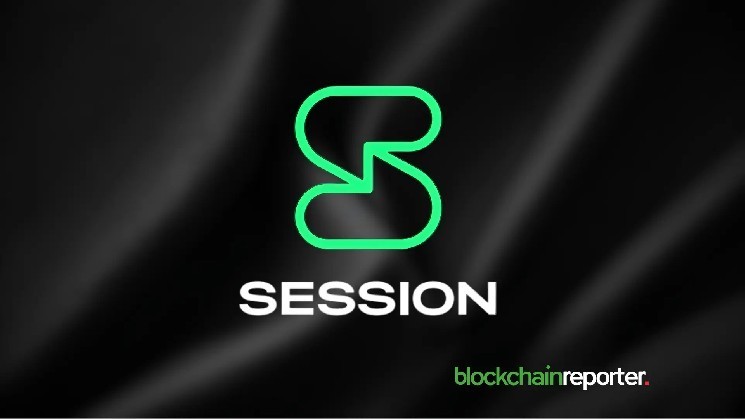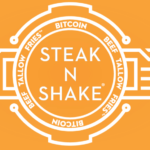Your basis describes Session as “designed to guard privateness, robustness via decentralization, and selection via interoperability.” Are you able to stroll us via the core architectural selections that make Session resilient to authorities blocks and centralized outages?
Session is constructed from the bottom as much as keep away from single factors of failure. Reasonably than sending messages via a single server, site visitors strikes throughout a community-run community of 1000’s of impartial nodes, so there is no such thing as a centralized “pot” of messages which may be monitored or breached.
Nodes solely maintain messages briefly whereas a person is offline. Content material is protected with end-to-end encryption, so even when a node shops a message briefly it might’t learn or entry it. Messages routinely expire after a set time or are deleted as soon as learn, stopping long-term storage anyplace on the community.
Session additionally makes use of onion routing (a layered encryption methodology just like Tor). Every message is wrapped in a number of encryption layers and relayed via a number of nodes; every node peels off one layer earlier than forwarding. No single node ever is aware of each the sender and the recipient, and even a compromised node can’t reveal sender, recipient, or content material.
Account creation requires no private particulars; no telephone numbers or emails. Accounts are generated cryptographically, so there’s no direct hyperlink between a Session ID and an actual particular person, defending customers even within the occasion of an exterior information breach.
By combining decentralization, short-term storage, sturdy end-to-end encryption, and nameless onion-routed supply, Session stays resilient to authorities censorship and centralized outages whereas conserving person privateness intact.
Session makes use of onion routing and a decentralized community fairly than a single server mannequin. What are the largest technical trade-offs you face between censorship-resistance and person expertise (latency, message supply ensures, onboarding friction)?
Traditionally, onion routing is related to gradual connections and lengthy load occasions. Nonetheless, Session’s onion routing protocol is comparatively light-weight, so you may nonetheless ship messages in just some seconds.
Nonetheless, one of many greatest trade-offs comes with the elimination of telephone numbers. A number of messaging apps require a telephone quantity to enroll, which suggests you may import your contacts record and discover buddies which can be utilizing the platform. Though this will make the method of switching messaging apps quicker, telephone numbers include privateness and safety dangers that open the door to spammers and scammers.
Latest real-world shutdowns and blocks pressure individuals to change instruments rapidly. How does Session design for discovery and onboarding work in locations with heavy censorship, restricted bandwidth, or intermittent connectivity?
Session is made broadly accessible, together with through default app shops (App Retailer, Play Retailer), various app shops (akin to F-Droid and regional alternate options), and direct obtain (through web site or GitHub). This makes it simpler for individuals to entry Session — even when the app shops of their area are censored or shut down.
Past this, organising an account on Session doesn’t require any third occasion authentication. It’s common for SMS-2FA companies to be attacked or blocked throughout shutdowns, stopping customers from verifying their telephone quantity and signing as much as new companies. Session will get round this requirement by eradicating telephone numbers in favour of a safe Account ID system.
Anti-censorship usually invitations makes an attempt to disrupt a community (DDoS, spam, Sybil assaults). What defensive mechanisms does Session use to protect privateness whereas conserving the community usable at scale?
Session’s anti-censorship design makes it naturally immune to network-level assaults like DDoS, spam, and Sybil exploits, whereas preserving privateness and usefulness. The community’s protection mechanisms begin with its structure: Session makes use of onion routing to anonymize site visitors, guaranteeing that no single node ever is aware of each the sender and recipient of a message. Every message hops via a number of independently operated nodes, which prevents any entity from tracing communication paths or amassing metadata.
To forestall Sybil assaults and large-scale spam, the Session Community employs a staking and reward mechanism constructed across the Session Token. Node operators should stake a hard and fast quantity of Session Token to hitch the community, creating an actual financial value that deters malicious actors from flooding it with pretend or hostile nodes. This staking additionally helps keep operational reliability, since nodes threat their stake in the event that they fail to carry out or act dishonestly. In return, operators earn periodic token rewards for routing messages and sustaining uptime, which incentivizes trustworthy and steady participation throughout a globally distributed community.
The Session Community improve permits it to be extra accessible to legit operators whereas making coordinated assaults much more costly to execute. Mixed with decentralized governance via the Session Know-how Basis’s non-profit stewardship and the privateness ensures of end-to-end encryption, these measures be certain that Session stays immune to censorship, resilient towards disruption, and usable at scale with out compromising its core mission of anonymity and freedom.
Funding decentralized infrastructure is tough. Session not too long ago launched a token and moved elements of its stack to new networks. Are you able to clarify how the $SESH token and the Arbitrum migration assist long-term resilience and infrastructure funding?
The $SESH token and Arbitrum migration are central to Session’s plan for long-term resilience and sustainable infrastructure funding. The $SESH token makes it potential for Session’s community to function with out counting on a central firm or single funding supply. Node operators stake $SESH to register their servers and, in return, earn token rewards for sustaining community reliability and efficiency. This spreads each the price and accountability for working the community throughout a worldwide group fairly than concentrating it in a single group. The migration to Arbitrum improves scalability, reduces transaction prices, and allows smoother staking and reward distribution, making participation extra environment friendly and accessible for individuals all over the world. The Session Know-how Basis, which guides the ecosystem, makes use of its token allocation and staking rewards to assist core growth, analysis grants, and infrastructure prices whereas sustaining strict decentralization limits. Collectively, these mechanisms be certain that Session stays self-sustaining, community-driven, and immune to central management over the long run.
The Basis not too long ago modified its working posture/jurisdiction amid law-enforcement pressures on privateness initiatives. How do authorized and regulatory dangers form technical decisions and governance for Session? How do you stability authorized compliance towards your mission?
Session’s contributors are at all times advocating for protections to end-to-end encryption, nevertheless, some jurisdictions have gotten more and more hostile in direction of safe and encrypted companies. It’s our agency perception that privateness and encryption could make our on-line areas safer and safer, and that encryption is pivotal for our digital future.
Organisationally, it is necessary that Session has a sturdy and various group of contributors engaged on the ecosystem. This prevents the altering winds of anybody nation or jurisdiction from presenting an existential menace to the way forward for the mission.
The stewarding organisation for Session was moved from Australia to Switzerland as a result of the regulatory and legislative atmosphere in Australia was fully hostile in direction of constructing a privateness software akin to an encrypted messaging app. Beneath Australia’s anti-terrorism legislation, authorities can compel technical help from firms, probably forcing compromises in encryption.
By relocating to Switzerland, a jurisdiction that understands and helps the type of know-how Session makes use of, the muse aligned its governance with a authorized framework that’s extra suitable with its mission of anonymity and metadata safety.
This enables the mission to take precedence, whereas additionally guaranteeing that the organisation exists in a jurisdiction the place the authorized threat of undermining that mission is diminished.
In excessive shutdowns, individuals additionally use mesh networks, satellite tv for pc hyperlinks, or sneakernet. Do you see Session integrating with various transport layers (mesh/LoRa/satellite tv for pc), or is the main target staying strictly on internet-based decentralization?
Proper now, Session requires an web connection to work. Nonetheless, I’m very excited to see the unimaginable work being carried out to maintain individuals related during times of full shutdown.
Metadata usually reveals greater than message content material. What particular metadata protections does Session present (e.g., avoiding centralized contact discovery, ephemeral metadata, routing obfuscation), and what remaining metadata dangers fear you most?
Session protects person metadata via a number of architectural and design decisions that make it not possible to gather or retailer figuring out data. The app doesn’t require a telephone quantity or electronic mail handle when creating an account. As an alternative, every person is recognized solely by a Session ID, which removes any hyperlink between the messenger and a real-world id.
Messages are routed via a decentralized community of independently operated Session Nodes, which means there is no such thing as a single entity able to logging or storing metadata about customers or their conversations.
Session additionally makes use of an onion routing protocol to cover customers’ IP addresses and communication routes. Each message travels via randomly chosen nodes, and no single node ever is aware of each the sender and the recipient. Mixed with end-to-end encryption, this ensures that message content material and metadata stay personal even from the community itself.
In consequence, Session collects and retains no metadata that might join messages, customers, or community exercise to real-world identities.
Humanitarian actors, journalists, and activists are frequent customers of censorship-resistant instruments. How do you interact with civil society to make sure Session meets their wants, and the way do you keep away from turning into a vector for wrongdoing with out weakening person privateness?
We join straight with probably the most at-risk and in-need communities who could make optimistic use of Session. This contains usually updating safety trainers and educators with details about Session, conducting person analysis with these communities, and sustaining relationships with organisations that defend human rights.
Interoperability issues if the following wave of safe messaging is to scale. Do you see Session interoperating with different encrypted protocols (Matrix, Sign protocol, XMTP, and many others.)? What requirements or bridges would you prioritize?
We’re undoubtedly open to interoperability and establishing good requirements for messaging. As to which requirements could be prioritized, this could rely fully on the wants of our group, the technical feasibility, and the maturity of the usual. Nonetheless, it’s additionally value noting that having a range of options is sort of worthwhile in terms of resisting state-level censorship or interference.
Wanting forward 3–5 years: what single technical or coverage change would most enhance the worldwide capacity for individuals to speak freely throughout state-level blocks, and what’s Session doing at this time to maneuver that needle?
Encrypted companies want multilateral assist from NGOs and world governments and correct authorized protections for the proper to encrypt.
Presently, all encrypted companies exist beneath the gray cloud of help notices and scanning necessities. With out encryption, the flexibility to speak freely—beneath shutdowns or in any other case—shall be eliminated fully. Hostile states will quickly have the ability to monitor communications (akin to of activists or journalists) and subsequently penalize their opponents.
Encryption is the muse on which most censorship-resilient know-how stands. The undermining of encryption or the flexibility to supply encrypted companies could be disastrous for these in much less free areas.








